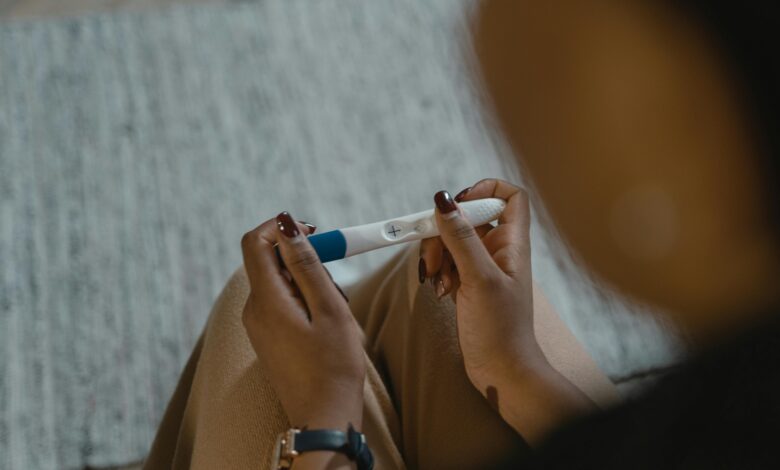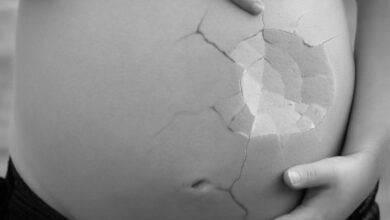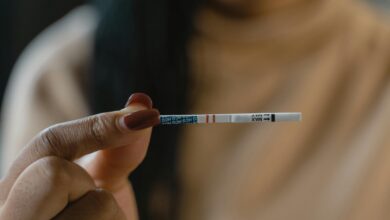Can Twins Cause a False Negative Pregnancy Test? What You Need to Know

Pregnancy tests are widely regarded as reliable indicators of early pregnancy, but they’re not infallible. Among the many questions women ask during the early stages of conception, one particularly intriguing concern is: Can twins cause a false negative pregnancy test?
The short answer is: Yes, it’s rare but possible.
In this comprehensive guide, we’ll explore the science of pregnancy tests, how multiple pregnancies affect hormone levels, why false negatives happen, and what you should do if you suspect you’re pregnant with twins despite a negative test result.
Understanding Pregnancy Tests: How They Work
Pregnancy tests detect a hormone called human chorionic gonadotropin (hCG), which is produced shortly after a fertilized egg implants into the uterine lining.
Home pregnancy tests typically work by:
Detecting hCG in urine
Providing a result based on a minimum threshold of hormone concentration
A positive result means hCG is present above that threshold. A false negative, however, means the test shows negative even when pregnancy has occurred.
What Is a False Negative Pregnancy Test?
A false negative pregnancy test occurs when the test fails to detect hCG despite its presence, leading to an incorrect result. This can happen for several reasons, including:
Testing too early
Diluted urine sample
Low sensitivity of the test
Timing of implantation
User error
But how does this connect to twins?
The Twin Pregnancy Factor: How It Affects hCG Levels
In a typical singleton pregnancy, hCG levels double approximately every 48 to 72 hours in early pregnancy. In a twin pregnancy, hCG levels are usually higher than average due to the presence of two developing embryos.
You might think: “Higher hCG means a stronger positive, right?”
That’s generally true, but the body doesn’t always follow predictable patterns.
Can Twins Cause a False Negative Pregnancy Test?
Yes, in rare and specific situations, a twin pregnancy can lead to a false negative. Here’s how:
1. The High-Dose Hook Effect
This rare biochemical phenomenon can occur when hCG levels are extremely elevated, such as in twin pregnancies. Instead of producing a strong positive result, excess hCG can saturate the antibodies in the test and lead to a false negative.
Why does it happen?
Pregnancy tests are designed to work within a certain hCG range.
When hCG is excessively high, the test may fail to form the necessary “sandwich” between the hCG molecules and the test antibodies.
As a result, the test line doesn’t appear.
2. Testing Too Early
Even in a twin pregnancy, if you test before the embryos have implanted or before hCG has built up to detectable levels in urine, the result may come back negative. While twin pregnancies typically produce more hCG, that doesn’t guarantee early detection.
3. Diluted Urine Samples
High fluid intake before taking the test can dilute the urine, making hCG harder to detect, even in a twin pregnancy. This increases the chances of a false negative.
4. Faulty or Expired Test
Using an expired or defective test can lead to inaccurate results, regardless of hCG levels.
Real-Life Cases and Medical Insights
Some medical case reports have documented hook effect instances during twin and molar pregnancies. In such cases, blood hCG testing often reveals elevated levels, confirming pregnancy despite multiple negative urine tests.
Example:
A woman tested negative on multiple urine tests but had pregnancy symptoms. Blood tests showed extremely high hCG levels. An ultrasound later confirmed a twin pregnancy. This is a classic example of the hook effect in action.
Signs You Might Be Pregnant with Twins Despite a Negative Test
If you’ve received a negative test result but continue to experience intense pregnancy symptoms, especially early on, it could be worth considering a multiple pregnancy.
Common twin pregnancy indicators include:
Severe nausea and vomiting (hyperemesis gravidarum)
Rapid weight gain in the early weeks
Extreme fatigue
Abnormally high hCG (if tested via blood)
A family history of twins or fertility treatment (e.g., IVF)
These signs, combined with a false negative result, may justify further testing.
What to Do If You Suspect You’re Pregnant With Twins but Get a Negative Test
1. Wait and Retest
Wait 2–3 days and test again using first-morning urine for higher hCG concentration.
2. Try a Different Brand
Some brands are more sensitive than others. Choose a test labeled “early result” or “ultra-sensitive.”
3. Get a Blood Test
A quantitative blood hCG test (also called a beta hCG test) can detect very low or very high levels and is not affected by the hook effect.
4. Consult a Doctor
If you’re still unsure, book an appointment with your OB-GYN. An ultrasound is the most definitive way to confirm pregnancy, and whether you’re expecting multiples.
How to Prevent a False Negative in Twin Pregnancies
Follow these tips for accurate testing:
Use first-morning urine
Test after a missed period
Avoid drinking excessive fluids before testing
Check the expiration date of the test
Follow instructions carefully
If you’re using fertility treatments or have a family history of twins, speak with your healthcare provider early on.
The Psychological Toll of False Negatives
A false negative pregnancy test, especially in women trying to conceive, can lead to confusion, frustration, and emotional distress. If you suspect pregnancy but tests are inconclusive, you’re not alone—and there’s always a path forward with the right medical support.
FAQs: Can Twins Cause a False Negative Pregnancy Test?
Q1: How common is a false negative with twin pregnancies?
A: It’s relatively rare, but possible, especially due to the hook effect or early testing. Most twin pregnancies still test positive once hCG levels stabilize.
Q2: Does having twins always mean higher hCG levels?
A: Generally, yes. Twin pregnancies produce more hCG, but levels can still vary between individuals and are not a guaranteed early detection indicator.
Q3: Can the hook effect happen in singleton pregnancies, too?
A: Yes, although it’s far more common in multiple or molar pregnancies due to higher hormone concentrations.
Q4: Will a blood test detect twins if a urine test fails?
A: A quantitative blood hCG test is highly accurate and can detect high levels consistent with twin pregnancies, even if urine tests are negative.
Q5: Can morning sickness indicate twins despite a negative test?
A: Intense morning sickness can be a sign of twins, but it’s not definitive. Always follow up with blood tests and ultrasounds.
Conclusion
So, can twins cause a false negative pregnancy test?
Yes, under specific and rare circumstances, like the hook effect, early testing, or diluted samples, a twin pregnancy may not register on a urine test initially. However, most twin pregnancies will show a positive result by the time of a missed period.
If you suspect you’re pregnant—especially with twins—despite a negative test, don’t rely solely on home kits. Blood tests and ultrasounds offer a clearer and more accurate diagnosis. Early prenatal care is essential, particularly in multiple pregnancies, where medical monitoring plays a vital role in ensuring maternal and fetal health.



